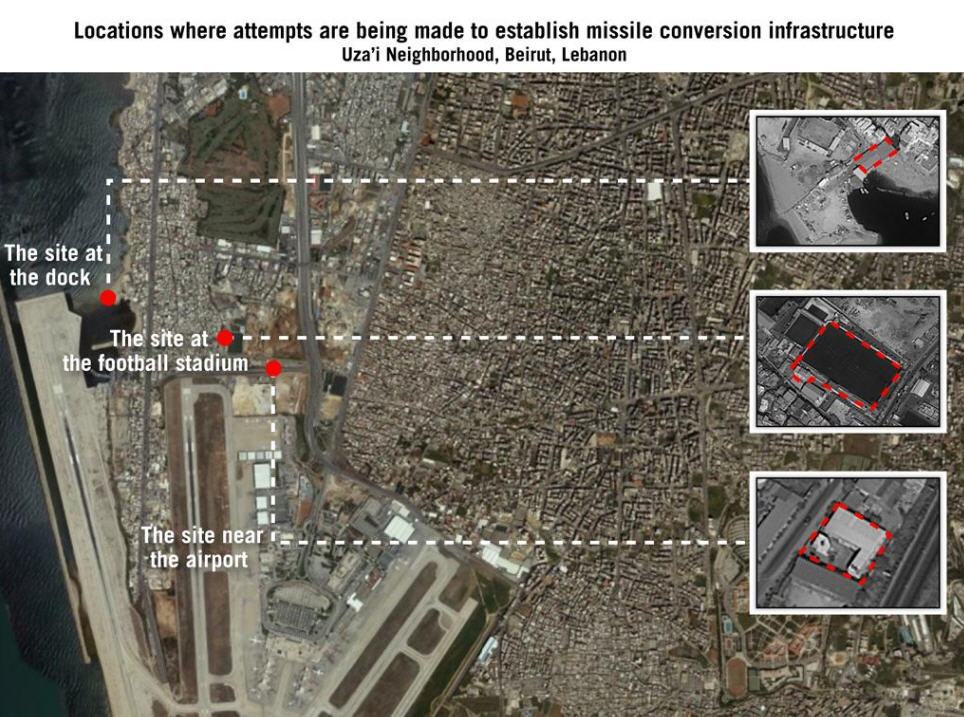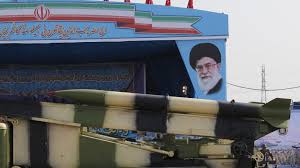Iran sent Hezbollah advanced weapons to turn rockets into precision missiles, new flight data suggests

American and western intelligence sources believe Iran has been increasing its shipments of advanced weaponry to Hezbollah, deliveries that now include Global Positioning System (GPS) components to make previously unguided rockets into precision guided-missiles, increasing the threat to Israel.
One of the Iranian flights arrived in Lebanon three days ago, officials tell Fox News.
Iran’s Fars Air Qeshm flight number QFZ-9950 departed Tehran International Airport on Tuesday at 9:33 a.m. local time, and flew to an unknown destination, according to flight data obtained by Fox News. Later in the day, the Boeing 747 jet touched down in Syria’s capital Damascus before continuing on to Beirut, arriving just past 2 p.m., according to the flight tracker software.
On Wednesday evening, the Iranian cargo plane departed Beirut for Doha, Qatar arriving just after midnight local time, and returned to Iran’s capital Thursday at 6:31 p.m.
Western intelligence sources said the Iranian cargo plane carried weapons components, including GPS devices to make precision-guided weapons in Iranian factories inside Lebanon.
The United States and Israel, as well as other western intelligence agencies, have offered evidence that Iran has operated similar weapons factories in Syria and Yemen, in addition to Lebanon.
Last month, at his address at the U.N. General Assembly in New York, Israeli Prime Minister Benjamin Netanyahu shared photos of what he said were three Hezbollah “secret sites” near Beirut’s international airport, locations where the GPS components from Tehran were being assembled to turn the rockets into precision-guided missiles capable of striking deep inside Israel “within an accuracy of 10 meters (11 yards).”
“I have a message for Hezbollah today: Israel knows, Israel also knows what you’re doing. Israel knows where you’re doing it. And Israel will not let you get away with it,” warned Netanyahu.
Western sources told Fox News the weapons components from this week’s chartered 747 fight from Tehran were bound for these Hezbollah secret sites near the Beirut airport to target Israel in the future.
A former head of Israeli military intelligence said Israel will not allow Iran’s weapons shipment to Lebanon and Syria to go unchecked.
“Israel is determined not to let it happen,” said retired Israeli Gen. Amos Yadlin. “This is a source of concern because if the Iranians, on the one hand, are determined to build this precision project with ballistic missiles, and the Israelis are determined not to let it happen—this is a recipe for collision.”
While not able to confirm this latest cargo flight from Tehran to Beirut, Gen. Yadlin is intimately familiar with Israel’s past use of preemptive strikes. He was one of eight F-16 fighter pilots who bombed Iraq’s nuclear reactor in 1981. Yadlin served as head of Israel’s military intelligence and helped plan Israel’s strike on Syria’s nascent nuclear reactor in 2007.
“The Iranians are building a formidable military presence in Syria with ballistic missiles, precise ballistic missiles, UAV, air defense. Israel is not going to allow Iran to duplicate Hezbollah in Syria,” Yadlin said in an exclusive interview with Fox News.
The Israeli military says it has conducted more than 200 airstrikes inside Syria since last year, targeting Iranian weapons shipments.
Hezbollah has been a designated terrorist organization by the U.S. State Department since 1997. The Iranian-funded terrorist group was responsible for the bombing of the U.S. Embassy in Beirut, killing over 50, and the U.S. Marine barracks in Lebanon’s capital six months later, killing 241 Americans and 58 French peacekeepers in 1983.
The group hijacked a TWA flight two years later, holding dozens of American hostage for weeks and killed a U.S. Navy sailor. In 2006, a federal judge held Iran responsible for the Khobar Towers bombing in Saudi Arabia that killed 19 American service members 10 years earlier.
Iran’s Fars Air Qeshm airline has long been accused of flying arms for the Islamic Revolutionary Guard Corps (IRGC) and the elite Quds force led by shadowy Iranian Gen. Qassem Soleimani. Last year, the Trump administration imposed sanctions on the IRGC and Quds force.
The Iranian airline ceased operations in 2013, citing poor management, but restarted under new management in March 2017. It is said to have two Boeing 747s in its fleet. Among the company’s new management are three current IRGC officials: Ali Naghi Gol Parsta, Hamid Reza Pahlvani and Gholamreza Qhasemi.
The United States is Lebanon’s primary supplier of military aid, according to the State Department. Since 2006, the U.S has provided Lebanon over $1.7 billion in security assistance, in part to counter Hezbollah.
Russia’s recent delivery of an advanced air defense system, the S-300, to Syria has both Israeli and U.S. intelligence concerned. Last month, a Russian reconnaissance aircraft was shot down by Syrian forces by mistake, killing all 15 aboard off the




